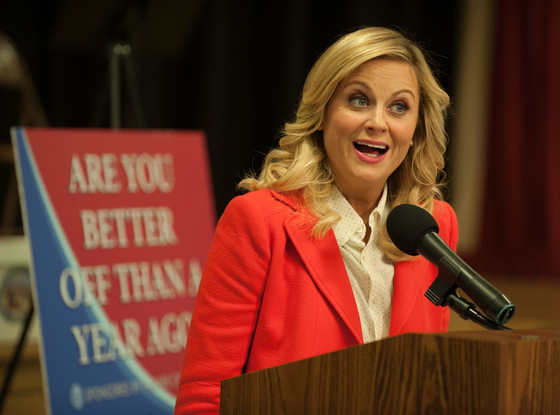 It is nearly impossible to discuss Amy Poehler without gushing. Even as a Hollywood power player, her genuine spirit seeps through her work at every level. At first, its hard to pinpoint exactly why she’s so great.
It is nearly impossible to discuss Amy Poehler without gushing. Even as a Hollywood power player, her genuine spirit seeps through her work at every level. At first, its hard to pinpoint exactly why she’s so great.
In feminism, there is something called your “click moment:” suddenly, you are bombarded with a small epiphany. It marks the time when you wake up to the sexism embedded into everyday life, but moreover its the feeling of putting a title to the discrepancy you’ve always felt.
Fans of Ms. Poehler have a similar click. She has a history in hilarity; she held seven years on SNL and had roles in absolute classics like Wet Hot American Summer. Yet there is more than just well timed joke to Amy. As she’s shown with Smart Girls at the Party , Amy seems to have a grand plan to make the world a better place. Still, only after inhaling the first four seasonsof Parks and Rec during a particularly humid week mid-August, did I have my Amy Poehler click moment: she has crafted the most wonderful representation of women on television in an ensemble cast.

Amy, like her character Leslie Knope, reminds us that its okay to be excited about things. When was the last time you were truly excited about things? When did that come out of style?!
Parks and Recreation (does any one ever call it that?) is one of the most hilarious shows on television. Amy pitched it at a time when The Office was still in its prime, and her character began as a female version of Michael Scott. It soon found its footing however, and gained a different set of values, which were told in an optimistic tone. It was a refreshingpolarity to the humor on most shows (including The Office), which at their core, stems from a negative place.
The great accomplishment of Parks and Rec is twofold: the humor deals with feminism without mocking it, and that the description of the show isn’t prefaced with “feminism” at all. Poehler promotes such a positive role model for young women, yet this is never the opening pitch. It’s hilarious and well written, and thats why its good. Consider how many films or works of art that are labeled feminist straight off the bat, and subsequently discussed only as such. Poehler perfectly executes a pathway around this trap; the show makes a statement by not making a statement.
In life, Amy knows the immense importance of female friendships. Watching Parks and Rec, I remember thinking there was something strange about the portrayal of Leslie’s and Ann’s friendship. They were nice to each other, supportive, and didn’t talk abut men constantly. Their conversations were not a plot device to forward “more important” ongoing romantic relationships.
I myself have taken to calling my friends “beautiful sunshine flower” a lá Leslie’s endearing words for Ann. In a world where comedy is alway using shock value and negatively to “push the envelope,” Poehler’s humor is a breath of fresh air, showing that nice guys and gals can still be funny.
Love is also represented in a unique way. The storyline of the show doesn’t depend on long, “will they, wont they?” relationships.
For example, it only took two seasons after meeting him for Leslie to marry Ben, the love of her life. As opposed to many sitcoms where the joke comes from couples putting each other down, their marriage is healthy and happy, and still their interactions are incredibly funny.

Leslie’s boss, the iconic Ron Swanson, gets married when he meets a girl he likes with no fuss. He is the quintessential manliest man of all time. If he had a dating profile-he wouldn’t, because of his penchant for being off the grid-his interests would be hunting, alcohol, steak, and most likely mustaches. Yet, he himself states that his life has always been filled with powerful women, and his new wife is the the best representation of them.
Another example of equality is April and Andy’s marriage. It is based on mutual love, as well as a love for FBI role play.
On Parks and Rec, there is no token feminist character. Poehler doesn’t depend on typical feminists stereotypes. At first glance, they might not even seem like feminists at all. Each character is rich in layers of their unique personalities, that capture the idea: This Is What A Feminist Looks Like.